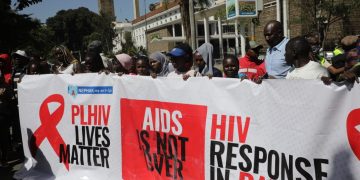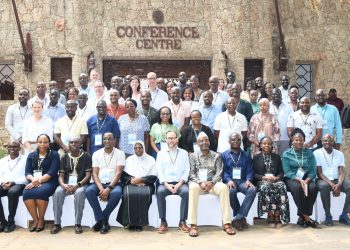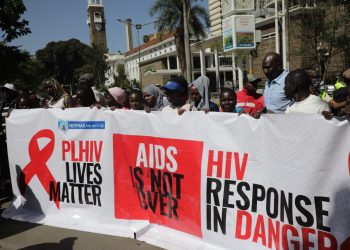By Nura Kabale
Many Kenyans believe that the lack of drugs in health facilities to be the greatest violation of their human rights, this is according to The State of Human Rights in Kenya report by various human rights group.
When asked which human rights violations pose the most risk to them personally 21 percent said that it was the right to healthcare while 12 percent said it was the unlawful killings by the police.
The study also finds that one out of 10 Kenyans had a member of their family denied health rights or had their health rights violated at a health facility.
Nearly all these cases are said to have taken place at a public health facility of public hospitals at 81percent, dispensary at 14 percent while five percent mentioned private hospital and health clinic.
The main type of violation according to the respondents is denial of access to drugs (70 percent), denial of admission (16 percent), getting overcharged (11 percent), and abuse by health workers/verbal abuse and insults (8 percent) among others.
The lack of drugs is mainly attributed to the standoff between the Kenya Medical Supplies Authority (Kemsa) and county governments over debt owed by the latter.
The impasse has led to patient suffering as they have had to visit hospitals without getting proper medication.
Kemsa has on several occasions demanded that the counties clear the debt before resuming supply of drugs and the biggest debtors were Nairobi, Narok and Migori counties who owed over a Sh162 million.
The agency had to stop supplying drugs in Nairobi County which has a debt of Sh384 million at the time which put a strain on the county’s hospitals. Narok owed Kemsa Sh104 million and Migori Sh58 million.
Kemsa said that despite the fact that they give counties a 45-day grace period, some counties have not paid debts dating back to two years which crippled services in various county hospitals.
Nairobi County allocated Sh384 million to pay the debt owed to Kemsa. The county government said the settlement of the debt will cater for the agency’s continued supply of drugs.
Kenyans view denial of healthcare services (21 percent), unlawful police killings (12 percent), hunger and inadequate low quality food (10 percent), and restrictions on freedom of expression (10 percent) as the major risks to their personal lives.
Other human rights violations that are seen as a risk include discrimination (9 percent), police harassment (8 percent), denial of educational rights (6 percent) and infringement of privacy (6 percent) among others.
According to the report, other human rights violations mentioned alongside this include police brutality (12 percent), domestic/sexual violence (9 percent), denial of health rights/services (8 percent) and discrimination (4percent) among others. Four in ten (36 percent) say they did not see or hear about human rights violations during that period.
The report by Amnesty International Kenya, Kenya National Commission on Human Rights, the International Commission of Jurists-Kenya Section, National Coalition of Human Rights Defenders and the Social Justice Centers Working Group asked 1,619 men and women in Kenya what they thought about the state of human rights in 2018.
Interviews were conducted in a total of 18 languages. These include English, Swahili, Kipsigis, Kisii, Borana, Embu, Kamba, Kikuyu, Luo, Maasai, Maragoli, Meru, Nandi, Pokot, Samburu, Somali, Tugen, and Turkana.














